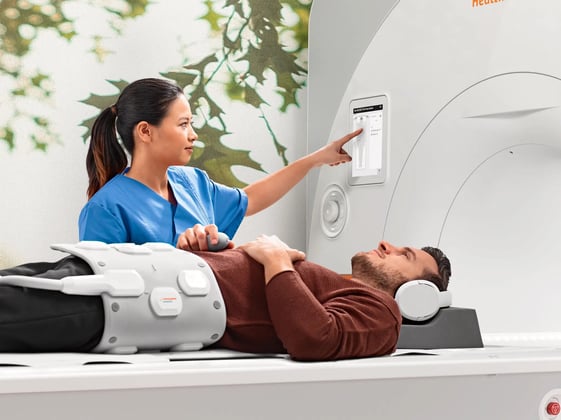 Cancelled appointments are an inevitable part of a radiology department's — and a hospital's — operations, as shown in an MGMA Stat poll.
Cancelled appointments are an inevitable part of a radiology department's — and a hospital's — operations, as shown in an MGMA Stat poll.
Looking at this through the lens of financial health, this increase in no-shows translates into a big profit hit for radiology. It's more than the loss of revenue from delivered services — it's also a matter of underutilization of resources.
Loss of Provided Service Revenue
Radiology services can be a big profit generator for hospitals. As the population ages and preventive measures become more commonplace, there is a heightened demand for CT scans, MRIs, and x-rays.
The cost of radiology services can vary for a variety of reasons, from where a service is performed to parts of the body being examined. If we're talking about a CT scan, the cost can range anywhere from $300 to $6,750 — up to 10 times more than your standard x-ray. Every cancelled CT scan leaves reimbursement money on the table.
Underutilization of Equipment and Staff
An MRI scanner can cost a hospital $500,000 at minimum. When these systems sit idle and aren't used to full capacity, hospitals miss out on maximizing return on investment. Fixed costs associated with these systems, such as maintenance, are also spread across fewer scans, causing cost per scan to increase.
Meanwhile, the staff that operates these scanners is underutilized. Without gaining revenue from performed scans, hospitals still have to foot the bill for staffing costs. As nationwide labor shortages have forced many hospitals to contract out labor, these costs can add up even more.
Increased Administrative Costs
Radiology department administrators already have a lot on their plate — and appointment cancellations add to their to-do list. Scheduling staff have to spend more time reaching out to patients and rescheduling visits, while other office and administrative staff need to update patient records to remain current. Beyond being a source of frustration, these extra manual interventions increase administrative labor costs.
How to Curb Appointment Cancellations
While some appointment cancellations are unavoidable, an investment in modern radiology technology can help a radiology department minimize their impact. In some cases, this can be a matter of purchasing new systems if your legacy equipment is hindering versus helping service.
Advanced imaging equipment is designed for reliability and performance. Features like automated quality control and calibration mechanisms make hospitals less prone to equipment breakdowns and failure. Fewer breakdowns mean fewer scenarios where the department will have to ask a patient to reschedule.
Modern imaging systems are also built for comfort and speed. MRI scanners can be outfitted with built-in noise cancellation technology and lightweight, breathable coils that easily adapt to a patient’s body and expedite setup times. When patients know that a scan will be faster with minimal noise or bodily discomfort, they'll likely feel less stressed about their appointment and be less inclined to cancel.
In other cases, investments could be a matter of enhancing your current systems with digital health capabilities. With remote scanning capabilities, for instance, hospital staff can access scan support from a pool of MRI technologists to conduct and read scans in a timely manner.
All of these variables put hospitals in an ideal position to grow their revenue.
This article was originally published on AuntMinnie.com on January 18, 2024. Click here to view the original article.
by Brian Bradfield on Feb 14, 2024




Comments